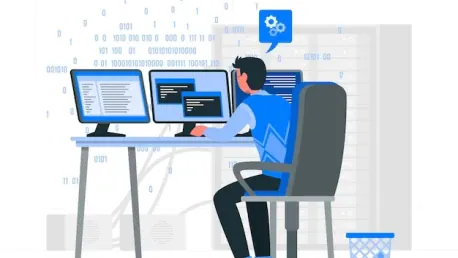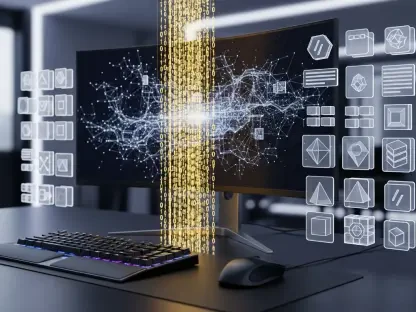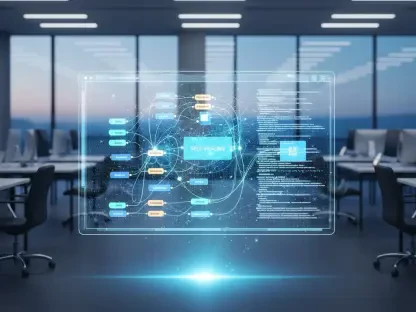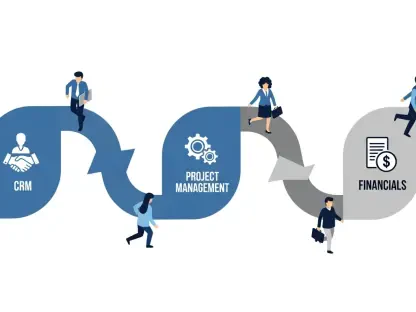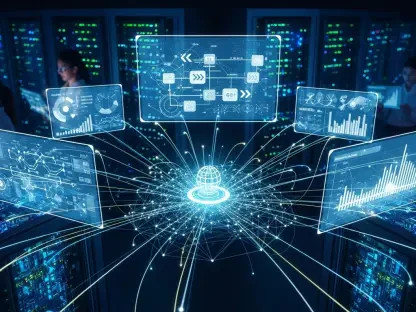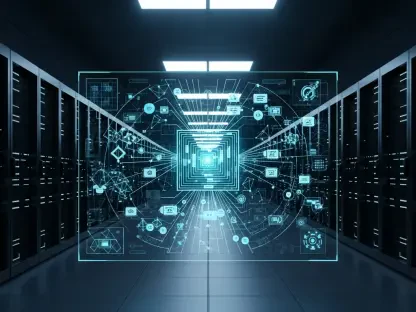Anand Naidu is our resident Development expert, proficient in both frontend and backend technologies. With deep insights into various coding languages, he provides a comprehensive overview of how AI and Large Language Models (LLMs) are reshaping the landscape of software development.
How has AI, particularly Large Language Models (LLMs), changed the landscape of software development?
AI has revolutionized software development by significantly accelerating tasks that used to take hours, if not days. For example, LLMs can generate code snippets, entire functions, or even full codebases in a fraction of the time it would take a human developer. This shift reduces the time and effort developers spend on writing boilerplate code, allowing them to focus on more complex architectural and logical aspects. The landscape has moved from manual coding to a more strategic planning and design phase where creativity and problem-solving skills are crucial.
What specific tasks can AI handle when it comes to code generation?
AI can manage a variety of tasks, from generating simple snippets of code to creating entire APIs with complex queries and functions. It’s also efficient in debugging and suggesting optimizations—something as specific as fixing a memory leak or improving code performance can be handled by these models. In addition, AI can refactor older code, making it more efficient and cleaner without human intervention.
Can you give examples of how AI can optimize code that a developer has written?
AI can identify inefficient loops, suggest algorithm optimizations, and enhance performance in ways that may not be immediately apparent to human developers. For instance, if there’s a complex recursive function, AI can recommend an iterative version or propose better data structures that improve execution time. It can also highlight redundant code and propose streamlined versions, making the overall code more efficient and easier to maintain.
What are the main challenges that software engineers face beyond just writing code?
Beyond coding, engineers contend with understanding intricate business logic, designing scalable architectures, and managing technical debt and security risks. These challenges require a deep understanding of the system as a whole and the ability to foresee how various components will interact over time. This broad perspective is critical for creating systems that are robust, secure, and scalable.
How does AI assist in overcoming these challenges?
AI offers valuable support by quickly generating and optimizing code, allowing engineers to focus on higher-level tasks. For issues like scalability and security, AI can provide recommendations based on vast datasets and previous solutions. It can simulate various load conditions and suggest architectural changes to ensure the system can handle increased demand. Moreover, AI can automate the management of technical debt by continuously monitoring the codebase and suggesting improvements.
In what ways is AI making the daily tasks of developers easier or more efficient?
AI reduces the time developers spend on debugging, writing boilerplate code, and refactoring. It finds bugs quickly, explains why they occur, and even suggests fixes, thus dramatically reducing the debugging time. AI can auto-generate scaffolding for projects, enabling developers to focus on customizing and fine-tuning the architecture to better suit business needs. This increased efficiency allows developers to concentrate on larger, more complex problems that genuinely require human ingenuity and insight.
What traditional tasks helped junior developers grow in their roles?
Junior developers traditionally honed their skills by fixing small bugs, writing simple features, and refactoring legacy code. These tasks were instrumental in helping them understand the codebase, learn good coding practices, and familiarize themselves with the development workflow.
How is AI taking over these traditional tasks?
AI can now handle many of these tasks at a much faster pace. For example, it can quickly identify and fix minor bugs, generate features based on given specifications, and refactor code to improve its quality. This shift means that junior developers will need to adapt by leveraging AI tools and focusing on validating and refining the AI-generated outputs.
What new skill sets do junior developers need to succeed in an AI-augmented environment?
Junior developers must now focus on AI literacy—understanding how to use and guide AI tools effectively. Critical thinking is also essential to spot and correct mistakes made by AI. Moreover, a solid grasp of architecture and systems design will be crucial as they will be required to understand and manage the systems within which the AI operates.
How is the role of senior engineers evolving due to AI advancements?
The role of senior engineers is becoming more strategic. They are now tasked with orchestrating AI workflows, ensuring that AI tools are utilized effectively and that the output is scalable, secure, and maintainable. They focus on high-level design, managing AI-driven projects, and mentoring junior developers in this AI-augmented landscape.
What are some specific high-level tasks that senior engineers now focus on, as opposed to basic coding?
Senior engineers are focusing on tasks like designing AI-assisted frameworks, fine-tuning AI models for efficient and secure operation, and building self-healing systems. These tasks require a deep understanding of both AI capabilities and limitations, as well as how to integrate AI seamlessly into existing workflows.
Can you provide examples of how senior engineers might orchestrate AI workflows?
A senior engineer might design an AI-assisted system that automates performance testing, identifies potential bottlenecks, and suggests architectural changes dynamically. They might also oversee AI-driven code refactoring projects, ensuring that the AI’s suggestions align with long-term architectural goals. Furthermore, they develop guidelines and best practices for using AI tools across the organization to ensure consistent and high-quality outputs.
What will be the primary responsibilities of engineers in the next five years?
In the next five years, engineers will primarily focus on designing robust, scalable systems, ensuring security, and managing AI models. Their role will shift towards AI governance, ensuring that AI tools operate fairly and ethically. Engineers will also need to continuously learn and adapt to new AI advancements, integrating them into their development processes to stay ahead of the curve.
How important will code generation be compared to tasks like design and security?
While code generation will become increasingly automated, the importance of design and security will grow. As AI takes over more routine coding tasks, engineers will need to focus on creating secure, scalable designs that can adapt to new challenges. Ensuring that AI-generated code is safe and meets regulatory standards will be critical.
What qualities will define the best engineers in the future?
The best engineers will be those who can effectively leverage AI tools, understand and manage complex systems, and anticipate future challenges. They will need strong problem-solving skills, creativity, and the ability to think strategically about both technical and ethical issues. Effective communication and teamwork will also be essential as they guide their teams through the evolving landscape of AI-augmented development.
How can an engineer ensure that AI-generated code is scalable and secure?
To ensure scalability and security, engineers should validate AI-generated code against established best practices, conduct rigorous testing, and continuously monitor for performance issues. They also need to stay current with security trends and updates, ensuring that AI tools follow these standards. Regular code reviews and integration of automated security testing tools can help maintain the quality and safety of AI-generated code.
What are AI hallucinations, and how do senior engineers manage them?
AI hallucinations occur when AI generates code or suggestions that are plausible but incorrect or nonsensical. Senior engineers manage these by implementing validation steps, cross-referencing AI outputs with accurate data and established knowledge, and using their expertise to identify and correct these errors. Thorough testing and peer reviews also help minimize the impact of AI hallucinations.
Can you explain the concept of building self-healing systems with AI?
Self-healing systems use AI to detect and fix issues in real-time. For example, if a system experiences a performance drop, AI can identify the cause—such as memory leaks or inefficient queries—and apply a fix. These systems are designed to adapt to new conditions without human intervention, thus minimizing downtime and maintaining performance.
What does it mean to be an AI trainer, and how does it differ from being a traditional software engineer?
An AI trainer focuses on training AI models to perform specific tasks accurately. This involves feeding the AI data, fine-tuning algorithms, and validating outputs. Unlike traditional software engineers who write code, AI trainers work on enhancing the AI’s understanding and improving its decision-making capabilities. They need to have a deep understanding of data, machine learning techniques, and the specific domain the AI is being trained for.
How can software engineers effectively guide AI to produce high-quality code?
Engineers can guide AI by providing high-quality training data, clearly defining the problem space, and continuously monitoring and refining AI outputs. They need to ensure that AI models understand the context and business requirements of a given project. Regular feedback loops, where AI outputs are reviewed and corrected, help in fine-tuning the models to achieve better results.
Why is critical thinking important in an AI-augmented development environment?
Critical thinking is crucial as it enables developers to identify when AI-generated code or suggestions are flawed or contextual errors. It helps them evaluate AI outputs critically, make informed decisions, and apply necessary corrections. By questioning AI results and understanding their limitations, engineers can ensure the end product is reliable, secure, and effective.
What is your forecast for the future of software development?
In the future, software development will increasingly leverage AI for routine tasks, allowing engineers to focus on strategic design, security, and system optimization. The role of engineers will evolve to manage and improve AI capabilities, ensuring technology integrates seamlessly with business needs. Continuous learning and adaptation will be key as the industry progresses, and those who embrace these changes will lead the charge in innovation and efficiency.
